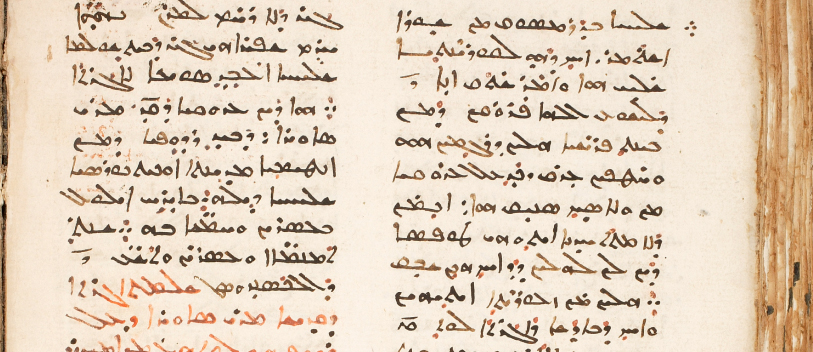
Translation from the work of St Severus of Antioch by Father Peter Farrington
Why then, when the Doctors call the most holy body of our Lord, God and Saviour, Christ, corruptible before the resurrection, in that it is mortal and suffers like us and is subject to the irreproachable passions, does your Holiness turn the conversation towards that which is corruptible by reason of sin?
Indeed, all confess that he is sinless and full of holiness, and that, therefore, he is incorruptible from the time of incarnation. You wrote, indeed: [Julian] “If they understand what Cyril, who is among the saints, says – that after the resurrection, our Lord had now acquired an incorruptible body – then before the resurrection it was corruptible, that they also say it is in sin”.
But it is easy for us to resort to the words which have frequently been repeated.
Scripture tells us these two things about our great God and Saviour, our Lord Jesus Christ. That he did not commit sin, and that guile was not found in his mouth, and that from his infancy he rejected evil. While, on the other hand, he suffered in the flesh and is in the flesh, the Fathers, who teach the mysteries to all those who under the sun, inasmuch as it is without sin and holy, have declared that incorruptibility has always existed in the body of our Saviour.
But when, by virtue of his submission to irreproachable suffering and to death, he suffered, died for us, and was resurrected, they professed it incorruptible and they confessed it in writing. Because no one ever declared that our Lord had appeared suffering in an impassible and immortal body; but all have instructed and taught the assemblies that they were to believe in one and the same, passible according to the flesh and impassible according to the divinity, as is abundantly demonstrated.
And let your piety consider his way of expressing himself, if it is right that you declare the human body “in sin”. Indeed, its unusual character struck my ears in a strange way, because until today I have found no-one among those who have taught in Greek in the Church, who has used it in his exposition, as, it seems to me, it gives a bad idea to those who hear it.
In the same way, whoever speaks of the animate body, signifies that there is a natural conjunction of soul and body, so also the one who says that the body is “in sin”, seems to indicate that sin is understood as naturally in the body.
I said this because of the falseness of the expression and its unusual character, for it is clear that
your Holiness confesses everywhere that sin occurs to man as a disease.
Sages like you have to apply accuracy and precision of terms. But maybe someone will say: We also say of him who has attended a course of rhetoric, and who has perfected himself in this discipline, that he has eloquence, and we say of one who has passed through trials of many kinds, that he has experience. This is not why we think that the oratorical discipline and the wealth of experience – because of the composition implied in the expression – are connatural to man as the body is, of course, inherent in the soul.
As he knows clearly, he who declares such things, no-one among the heretics ever said that the oratorical discipline or art, or the experience of things are naturally included in the constitution and in the nature of man. But, as regards sin, the Manichaeans and those who talk nonsense like them have said, in their blasphemous delirium, that it is mingled, as a natural element, with the human substance.
And that’s why we said we should not call the body “in sin”, but depart from those expressions which are at the same time suspicious and unusual.
Commentary
This is an important passage. Julian of Halicarnassus was confused. He thought that if the flesh was mortal and liable to sufferings and blameless passions then it must also be sinful, it must be “in sin”, as he says. But St Severus is clear. Mortality, suffering and the blameless passions are not sinful at all. Indeed, he insists that there are no Fathers of the Church writing in Greek who ever support the idea that the human body is “in sin”.
He objects to the idea that sin can be mixed with the human nature, and so the humanity of our Lord, mortal, liable to suffer and to the movements of the blameless passions is not sinful at all, and our own humanity, of the same nature, is not sinful either.
Of course humans are sinful, and all of us reading this are sinful, but St Severus could not be clearer. The Fathers do not teach that our humanity is “in sin”, and this is a strange and unusual expression that should not be used. Julian has more in common with the Manichaeans than with the Fathers.

One Response to "Translation – Writings Against Julian – p131"